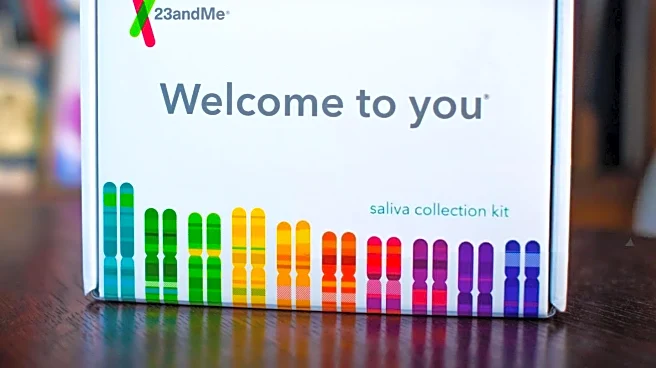What's Happening?
Researchers at the Johns Hopkins Kimmel Cancer Center have co-led a study demonstrating the use of circulating tumor DNA (ctDNA) to guide post-surgery chemotherapy in patients with Stage 3 colon cancer.
The study, part of the DYNAMIC-III trial, involved 1,002 patients and was conducted across multiple international sites. By using ctDNA testing, patients were stratified into different treatment paths based on their risk of cancer recurrence. Those testing negative for ctDNA received reduced chemotherapy, resulting in fewer hospitalizations and side effects. Conversely, patients testing positive for ctDNA received escalated therapy, although this did not significantly improve outcomes compared to standard care. The study highlights ctDNA as a strong prognostic marker for predicting relapse-free survival and tailoring chemotherapy regimens.
Why It's Important?
This study represents a significant advancement in precision medicine, offering a more personalized approach to cancer treatment. By tailoring chemotherapy based on ctDNA status, patients can potentially avoid unnecessary side effects from aggressive treatments. This approach not only improves patient quality of life but also optimizes healthcare resources by reducing hospitalizations and treatment-related adverse events. The findings could pave the way for similar strategies in other cancer types, enhancing the overall efficacy of cancer management. The study underscores the potential of ctDNA as a tool for improving patient outcomes and guiding clinical decisions in oncology.
What's Next?
The study suggests that ctDNA testing could soon become a standard part of clinical decision-making for colon cancer patients. Researchers are likely to explore the application of ctDNA-guided therapy in other tumor types, potentially broadening the scope of precision oncology. Further research may focus on developing novel strategies for patients who remain ctDNA-positive after treatment, as these individuals face a higher risk of recurrence. The integration of ctDNA testing into routine clinical practice could lead to more personalized and effective cancer care, ultimately improving survival rates and patient experiences.
Beyond the Headlines
The use of ctDNA in cancer treatment raises important ethical and logistical considerations. As precision medicine becomes more prevalent, issues such as patient access to advanced diagnostics and the cost of personalized therapies will need to be addressed. Additionally, the reliance on genetic markers for treatment decisions may prompt discussions about genetic privacy and data security. The study also highlights the need for continued innovation in cancer treatment, particularly for patients who do not respond to current therapies. As the field evolves, collaboration between researchers, clinicians, and policymakers will be crucial in ensuring equitable access to these advancements.










